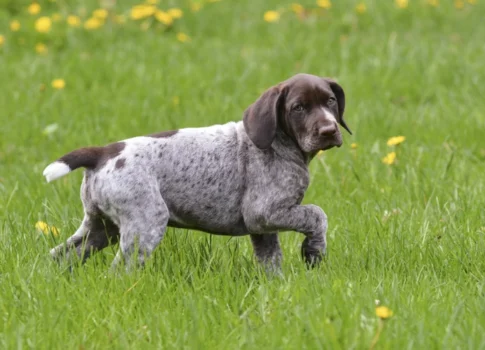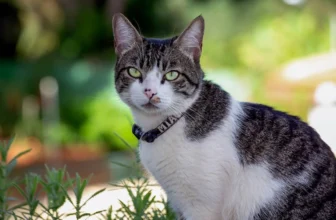As an American Wirehair cat owner, you may have considered breeding your feline friend. However, before you start looking for a breeding partner for your cat, it’s important to consider the potential risks and challenges that come with breeding. One crucial step in this process is genetic testing. Genetic testing allows breeders to identify potential health risks, inherited diseases, and genetic abnormalities in potential breeding partners. In this article, we’ll explore the importance of genetic testing before choosing a breeding partner for your American Wirehair. We’ll also discuss the different types of genetic testing available, when to get your cat genetically tested, and how to choose a responsible breeding partner.
What is Genetic Testing
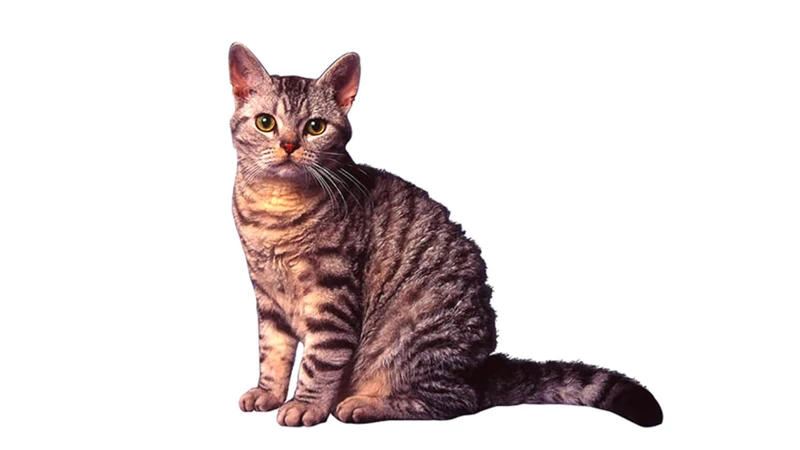
What is Genetic Testing? Before delving into the importance of genetic testing before breeding an American Wirehair, it is important to understand what genetic testing is. In essence, genetic testing is the analysis of an animal’s DNA to determine the presence of certain genetic traits or mutations that may be passed down to their offspring. This allows breeders to make informed decisions when it comes to selecting a breeding partner for their American Wirehair. Genetic testing is becoming increasingly popular among cat breeders as it has numerous benefits. Let’s explore these benefits in the following sections. If you want to learn more about Wirehair breeding traits, click here.
Understanding Genetic Testing
Genetic testing is a scientific process that examines an animal’s genetic makeup by studying its DNA. This type of testing is used to identify any potential health risks and/or inherited diseases that could be passed on to the offspring. In the context of the American Wirehair breed, genetic testing can help breeders select the best breeding partner to improve the overall health and quality of the breed.
Here are some key things to know about genetic testing:
- Genetic testing helps to identify any genetic risks and/or inherited diseases in potential breeding partners to determine whether they are suitable for producing healthy offspring.
- Genetic testing can help breeders to understand the genetic makeup of the breeding pair and how it may be passed on to future generations.
- Genetic testing is typically carried out by taking a sample of the animal’s DNA; this can be done through a blood test, cheek swab, or other methods.
It is important to understand that genetic testing is not a guarantee that the offspring will be free of genetic diseases or abnormalities. However, it can help breeders to minimize the risk of breeding cats with known genetic diseases and reduce the likelihood of producing offspring with inherited conditions.
It is also important to note that genetic testing can be an expensive process, which is why it is crucial to only use reputable breeders who take genetic testing seriously. Breeders who prioritize genetic testing in their breeding programs can help ensure the health and longevity of the American Wirehair breed, which can benefit both the cats and their owners.
When selecting a breeding partner, it is crucial to look for a cat that has been genetically tested and is free of any genetic diseases or abnormalities. This information can typically be found in the cat’s health records or pedigree. By selecting a compatible breeding partner with good genetic health, breeders can increase the likelihood of producing healthy and happy cats.
Want to learn more about selecting a responsible breeding partner for your American Wirehair? Check out our article on how to choose a compatible breeding partner.
Why is Genetic Testing Important in Breeding?
Genetic testing is an essential aspect of breeding, and it is crucial to understand why. The importance of genetic testing boils down to ensuring that the breeder is making informed decisions based on the health of their animals. Two of the major reasons why genetic testing is important in breeding are to reduce the risk of inherited diseases and to improve the quality of life of the kittens.
Genetic testing is a powerful tool that helps breeders to identify any potential problems and helps in making informed breeding decisions. Through genetic testing, breeders can detect any genetic mutation that could negatively affect the health of the kitten and reduce the risk of passing any genetic traits that could cause harm.
The table below presents some of the reasons why genetic testing is crucial in breeding:
| Reasons Why Genetic Testing is Crucial in Breeding |
|---|
| To reduce the risk of inherited diseases |
| To improve the quality of life of kittens |
| To make more informed breeding decisions |
| To ensure the health of the offspring |
| To lower the chances of producing kittens with genetic disorders |
One critical benefit of genetic testing is that it helps breeders to avoid passing down genetic defects and disorders to the offspring. Through testing, breeders can identify carriers of a particular trait, and this can help in making informed breeding decisions that reduce the risk of these conditions being passed on to the offspring.
Genetic testing also empowers breeders to make more informed decisions, ensuring that they choose the best breeding partner for their American Wirehair. By considering the results of genetic tests, breeders can match cats that complement each other genetically and produce healthy kittens.
Genetic testing is crucial in breeding, and it is essential to understand its importance to make informed decisions. Genetic testing can help reduce the risk of inherited diseases, improve the quality of life of kittens, facilitate informed breeding decisions, ensure the health of offspring, and lower the chances of producing kittens with genetic disorders. To learn more about American Wirehair breeding and health, follow the link to /american-wirehair-breeding-health-temperament/.
Benefits of Genetic Testing
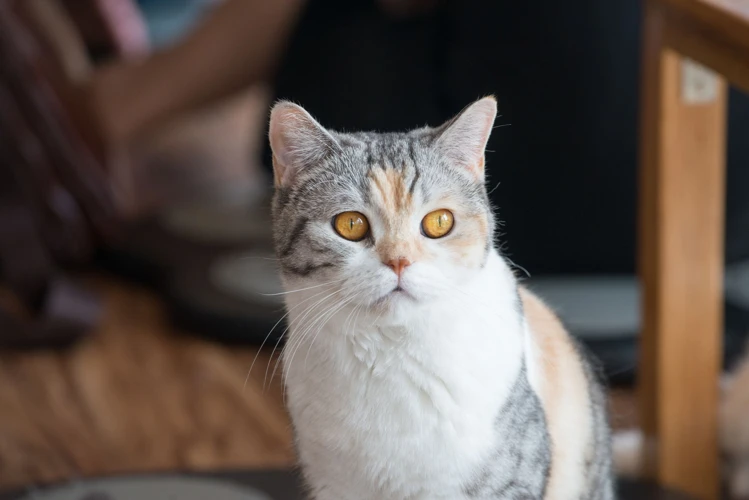
When it comes to breeding American Wirehair cats, getting genetic testing done on potential breeding partners is essential. It not only ensures the health of the kittens but also helps to improve the quality of life of the breed. Genetic testing benefits everyone involved in the breeding process, from the breeders to the future owners of these beloved cats. Let’s take a closer look at these benefits. To learn more about selecting the right breeding partner for your American Wirehair, check out our article on selecting a responsible breeding partner.
Healthier Kittens
Genetic testing before breeding your American Wirehair can ensure that your kittens are healthier and have a higher chance of leading a long, happy life. By detecting potential genetic issues beforehand, breeders can take preventive measures and make informed decisions regarding which cats to breed.
Below are the ways in which genetic testing can lead to healthier kittens:
| Benefits of genetic testing | Explanation |
|---|---|
| Prevention of inherited diseases and disorders: | Genetic testing helps identify potential health issues in cats, such as polycystic kidney disease, retinal degeneration, and hypertrophic cardiomyopathy. These conditions can be inherited and cause severe health problems in the kitten. Knowing of the cat’s genetic makeup can help reduce the likelihood of passing these conditions on to the next generations of kittens. |
| Strategic breeding: | Once a breeder has the results of genetic testing, they can select breeding partners based on optimal genetic pairings, avoiding the risk of inbreeding or pairing two genetically at-risk cats. This can lead to a healthier litter of kittens with a lower chance of inheriting diseases and genetic disorders. |
| Early diagnosis and treatment: | Genetic testing can help detect certain genetic diseases at an early age, which can improve the chances of treatment and make an enormous difference in the cat’s quality of life. For instance, cats with deafness or blindness due to genetic disorders can receive the necessary treatment and care to improve their quality of life. |
Genetic testing provides breeders with a way to ensure optimal genetic health when breeding their cats. These tests can help identify inherited conditions and diseases, resulting in healthier litters of kittens. Additionally, when breeders have information about the genetic makeup of their cats and potential breeding partners, they can create optimal, strategic pairings and prevent inbreeding.
It is essential to remember that just because a cat has an inherited disease doesn’t mean they should not be bred. In some cases, cats can become carriers of a disease without ever developing the condition themselves. Breeders can make informed decisions by considering all information available to protect and maintain the breed’s overall health.
Inbreeding and outbreeding are common practices among breeders. Being aware of the pros and cons of each approach can help breeders decide how to proceed with their breeding program and ensure the health and well-being of their American Wirehair cats.
Lower Risk of Inherited Diseases
One of the major benefits of genetic testing prior to choosing a breeding partner for your American Wirehair is that it reduces the risk of inherited diseases. Inherited diseases are diseases that are passed down from a parent or ancestors to its offspring. Without genetic testing, it can be difficult to know if a cat is carrying a genetic mutation that can lead to a certain inherited disease.
Genetic testing helps breeders to identify carrier cats and avoid mating them with other carriers, which would increase the risk of inherited diseases in their offspring. Carriers are cats that are not affected by the disease but have a copy of the mutation that can be passed on to their offspring. When two carriers breed, there is a 25% chance that their offspring will be affected by the disease.
Using genetic testing, breeders can identify carriers and avoid mating them with other carriers, which reduces the risk of producing offspring with inherited diseases. By doing so, breeders can ensure that their kittens are healthy and have a better chance of living a long and happy life.
Some inherited diseases that commonly affect American Wirehairs include hypertrophic cardiomyopathy, polycystic kidney disease, and progressive retinal atrophy. By getting your cats genetically tested, you can identify if your cat is carrying any of these mutations and take preventive measures to avoid the offspring from suffering from these diseases.
It is important to note that genetic testing is not a guarantee that your cat’s offspring will never develop inherited diseases, but it is a powerful tool that can help reduce the risk substantially. Genetic testing should be an important part of any responsible breeder’s screening process.
| Inherited Disease | Description |
|---|---|
| Hypertrophic Cardiomyopathy | A heart disease that causes thickening of the heart muscles, leading to heart failure. |
| Polycystic Kidney Disease | A disease that causes the formation of cysts in the kidneys, leading to kidney failure. |
| Progressive Retinal Atrophy | A genetic disease that causes degeneration of the retina, leading to blindness. |
Genetic testing plays a crucial role in reducing the risk of inherited diseases in American Wirehair breeding. By identifying carriers and avoiding mating them with other carriers, breeders can ensure that their kittens are healthy and have a better chance of living a long and happy life. So, it is always recommended to get your cats genetically tested before breeding.
Improved Quality of Life
Genetic testing is crucial for American Wirehair cat breeders because it can help them optimize their breeding pairs for healthier offspring. Improved quality of life is one of the benefits that can result from genetic testing.
Here are ways genetic testing can lead to improved quality of life for American Wirehairs:
- Prevention of Inherited Diseases: One of the most significant benefits of genetic testing for cat breeders is its contribution to preventing inherited diseases. Genetic testing can identify the genes responsible for ailments such as hypertrophic cardiomyopathy, kidney disease, and polycystic kidney disease. Once these genes have been identified, breeders can avoid pairing cats that possess them, which ultimately prevents the development of inherited disorders in their offspring.
- Better Parental Pairing: Genetic testing can help breeders choose cats with lower chances of transmitting genetic disorders to their kittens. By selecting breeding pairs that are less likely to pass on harmful genetic mutations, breeders can ensure that their offspring will be healthier and have better quality lives.
- Improved Understanding of Breeding Lines: Genetic testing can provide breeders with a better understanding of the specific breeding lines’ genetic makeup and the issues that lie within it. This information allows them to make informed decisions to improve the breed’s genetic health by selecting healthier cats as breeding pairs.
By implementing genetic testing into a breeding program, breeders can take an active role in promoting better health and a higher quality of life for their cats. With advanced genetic testing, it is becoming possible to predict diseases and conditions before breeding, thus allowing breeders to take steps towards preventing them in their future generations.
Genetic testing is an essential tool for breeders to improve the health and wellbeing of American Wirehair cats. However, it is also important to choose a responsible breeding partner to further increase the chances of success and positive outcomes. Check out our article on common mistakes to avoid in American Wirehair breeding to make the most out of your breeding program.
Better Matches for Breeding
When it comes to breeding American Wirehairs, genetic testing can help to create better matches between two potential breeding partners. This is because genetic testing can help to identify which traits each cat carries, and which ones they don’t. By knowing this information, breeders can choose cats that complement each other genetically, which can lead to healthier, more temperamentally sound kittens.
For example, if one American Wirehair cat carries a recessive gene for a certain disease, but the other cat doesn’t carry that gene at all, then their offspring are less likely to inherit the disease. Similarly, if one cat has a dominant gene for a certain coat color or pattern, and the other cat doesn’t have that gene, then their offspring will likely inherit that coat color or pattern.
Additionally, genetic testing can help breeders avoid pairing cats that are too closely related. Inbreeding can increase the risk of inherited diseases and other health issues, which is why it’s important for breeders to choose American Wirehair cats that are genetically diverse.
By using genetic testing to create better matches between potential breeding partners, breeders can help to ensure that their kittens are healthy, have good temperaments, and are more likely to meet breed standards. It’s important for breeders to take all of these factors into consideration when choosing which cats to breed together.
Genetic testing provides valuable information that can help breeders make informed decisions when it comes to choosing breeding partners for their American Wirehairs. To learn more about coat color and patterning in American Wirehair breeding, check out our article on coat color and pattern in American Wirehair breeding. And for more information on the benefits of crossbreeding American Wirehair cats, see our article on the benefits of crossbreeding American Wirehair cats.
Increased Chances of Success
Genetic testing can increase the chances of success in breeding American Wirehairs by providing breeders with valuable information about the genetics of their cats. With this information, breeders can make informed decisions about which cats to breed and which to avoid.
How genetic testing increases the chances of success:
| Increased chances of producing healthy kittens | Genetic testing can help identify carriers of genetic diseases, allowing breeders to avoid breeding cats that are at risk of passing on a harmful mutation. By avoiding the mating of two cats that both carry the same genetic mutation, breeders can significantly reduce the risk of passing the disease on to their offspring and can increase the chances of producing healthy kittens. |
|---|---|
| Better matches for breeding | Genetic testing can also help breeders make better matches for breeding. By testing for specific traits, breeders can determine which cats have desirable traits that they wish to pass on to their offspring. This can help ensure that the resulting kittens have a higher chance of meeting the breeder’s desired traits, such as a certain coat color or pattern. |
| Reduced risk of genetic disorders | As mentioned earlier, genetic testing can help avoid breeding cats that carry the same genetic mutation, therefore reducing the risk of offspring being born with genetic disorders. This can increase the chances of success in breeding healthier cats who have a higher chance of a longer lifespan. |
Knowing the genetic makeup of the cats that you plan to breed can help you make more informed decisions about which cats to mate, and can increase the chances of success in breeding healthy, desirable, and genetically diverse American Wirehairs. Genetic testing is an important tool for breeders who want to ensure the long-term health and success of their breeding program.
The Different Types of Genetic Testing
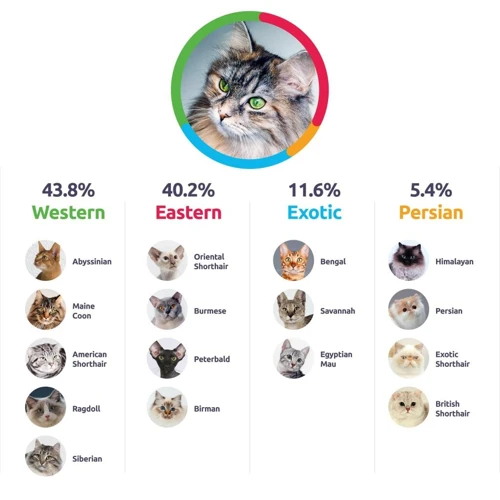
Understanding the different types of genetic testing is essential for American Wirehair cat breeders who want to produce healthy offspring. Various types of genetic testing can help predict the likelihood of inherited diseases, parentage verification, hereditary traits, and even cat coat color. Each type of genetic testing serves a different purpose, but all are necessary for responsible breeding. Let’s take a closer look at each type of genetic testing in this section of the article.
Parentage Verification Testing
One of the most important types of genetic testing for your American Wirehair before choosing a breeding partner is parentage verification testing. This type of testing is crucial in ensuring that the lineage of your cat is accurate. Parentage verification testing can also help prevent accidental inbreeding, which can lead to health issues in offspring.
What is Parentage Verification Testing?
Parentage verification testing is a DNA-based test that confirms the identity of a cat’s parents. This type of testing compares the DNA of the cat to the DNA of its alleged parents to determine if they are truly the parents. This testing is done by collecting a small sample of tissue or blood from the cat and its alleged parents.
Why is Parentage Verification Testing Important?
Parentage verification testing is essential for breeding cats because it ensures that the lineage of the cat is accurate. This testing can eliminate the possibility of inbreeding and can help prevent the spread of genetic diseases in future generations. It also ensures that your cat is indeed a purebred American Wirehair and not a mix of another breed.
The Process of Parentage Verification Testing
Once the genetic samples have been collected from the cat and its alleged parents, the samples are sent to a laboratory for analysis. The laboratory will compare the DNA of the cat to the DNA of the alleged parents to determine if they are a match. The results of the testing usually take a few weeks to receive.
Conclusion
Parentage verification testing is a crucial part of genetic testing for American Wirehair breeding. This type of testing ensures that the lineage of the cat is accurate and prevents accidental inbreeding. It is important to choose a responsible breeding partner who has performed this type of testing and can provide proof of lineage for each cat involved in the breeding process.
Disease-Specific Testing
Disease-specific testing is an essential part of genetic testing in the American Wirehair breed. This type of testing is used to identify any specific genetic diseases or disorders that may be present in your cat. These tests are designed to provide breeders with an understanding of the genetic predisposition of their breeding cats to various diseases, allowing them to make informed decisions about breeding.
One of the most commonly tested diseases in American Wirehairs is hypertrophic cardiomyopathy (HCM). This is a genetic heart disease that affects many breeds, including this one. By getting your cat tested, you can determine if they carry the HCM gene, and if so, work to avoid breeding them with cats that also carry the gene, reducing the risk of the disease in future litters.
Testing for HCM involves a simple cheek swab or blood sample, which is sent to a laboratory for analysis. The results are usually available within a few weeks and will indicate whether your cat is clear, a carrier, or affected by the disease.
Other diseases that may be tested for in American Wirehairs include:
| Disease | Description |
|---|---|
| Pkdef deficiency | Test detects a genetic mutation that leads to anemia and an enlarged spleen. |
| SMA (spinal muscular atrophy) | Affects muscle control and can cause muscle weakness and atrophy. |
| Polycystic kidney disease | A genetic disorder that causes fluid-filled cysts to form in the kidneys, impacting their function over time. |
It’s important to note that while disease-specific testing can identify the risk of certain diseases, it cannot guarantee that your cat or its offspring will never develop any genetic diseases. However, it helps breeders to make informed decisions about breeding and avoid the proliferation of these diseases.
Ultimately, disease-specific testing is an essential tool for responsible American Wirehair breeders who want to ensure that their cats and their offspring are as healthy as possible. By testing for specific diseases and genetic mutations, breeders can work to create a healthier breed with a lower risk of genetic disorders.
Hereditary Trait Testing
Hereditary trait testing is a vital aspect of genetic testing for American Wirehair breeding. This kind of testing is conducted to determine the likelihood of inherited traits such as coat color, pattern, and texture in offspring. The test involves analyzing DNA samples to detect variations in genes that are responsible for specific traits.
The following table illustrates some common traits tested in American Wirehairs:
| Trait | Description | Potential Issues |
|---|---|---|
| Dense Coat | Thick, soft undercoat and a coarse outer coat | May cause matting and require more grooming |
| Curly Coat | Tight curls or waves in the fur | May lead to skin irritation and require specialized grooming techniques |
| Short Tail | Shortened tail, usually due to a genetic mutation | May cause spinal issues and impact mobility |
| Bobbed Tail | Varying degrees of taillessness | May increase the risk of spinal issues and affect balance |
| Odd Eyes | Eyes of different colors | May cause visual impairments or be indicative of genetic disorders |
| Folded Ears | Ears that fold forward or downward | May cause ear infections and require specialized cleaning methods |
By testing for these hereditary traits, breeders can limit the spread of unwanted characteristics and focus on producing desired traits. Additionally, understanding hereditary traits can help breeders plan for potential health issues that may arise in a breeding program.
While hereditary trait testing is important, it is crucial to keep in mind that not all traits can be easily tested for or controlled. Breeders must still take into account environmental factors that can affect a cat’s traits, such as nutrition and grooming practices. Hereditary trait testing, when used in conjunction with other forms of genetic testing, can lead to healthier and stronger lineages of American Wirehairs.
Cat Coat Color Testing
Cat coat color testing is a type of genetic testing that can help breeders understand the genetic makeup of their American Wirehair’s coat color. It can also help breeders determine the potential coat colors of future kittens. This testing can be particularly important for American Wirehairs, as their unique wiry coat can come in a variety of colors.
Here are some key points about cat coat color testing:
- Genes determine the color and pattern of a cat’s coat.
- There are many genes that contribute to coat color and pattern, and some are specific to certain breeds or populations.
- The most common coat colors in American Wirehairs are brown tabby, silver tabby, and solid colors like white, black, and red.
- Cat coat color testing can identify which genes are present in a cat’s DNA, and can therefore predict the potential coat colors of their offspring.
Why is cat coat color testing important?
Knowing the potential coat colors of future kittens can be crucial for breeders. Some coat colors may be more desirable than others, and being able to identify which cats possess certain coat color genes can help breeders make informed decisions about which cats to pair for breeding. It can also help breeders avoid undesirable coat colors or patterns that may not be recognized by cat breed registries.
How is cat coat color testing done?
Cat coat color testing is usually done through a simple DNA test, which can be performed by a veterinarian or a specialized laboratory. The test usually involves taking a small sample of the cat’s blood or saliva, which is then analyzed for specific genes related to coat color and pattern. The results of the test can help breeders make more informed decisions about which cats to pair for breeding.
What are the benefits of cat coat color testing?
There are many benefits of cat coat color testing, including:
- Identifying potential coat colors of future kittens
- Avoiding undesirable coat colors or patterns
- Making more informed breeding decisions
- Improving the overall quality of the breed
Conclusion
Cat coat color testing can be a valuable tool for American Wirehair breeders looking to make informed decisions about breeding partners. By understanding the genetics of coat color and pattern, breeders can make better decisions about which cats to breed together and improve the overall quality of the breed.
Carrier Identification Testing
Carrier identification testing is another type of genetic testing that is crucial for breeding American Wirehairs. This test is used to identify whether a particular cat carries a specific gene that may cause a genetic disease or condition.
How does carrier identification testing work?
- The veterinarian will take a DNA sample from the cat through a blood or cheek swab test.
- The sample is then tested in a laboratory to determine whether the cat carries a mutated gene or not.
- If the cat is a carrier, it means that they have one copy of the mutated gene and one copy of the normal gene.
- If both parents are carriers, then there is a chance that their kittens may inherit two copies of the gene, which can lead to the development of the genetic disease in question.
Why is carrier identification testing important?
- By identifying carriers, breeders can avoid mating two cats that are carriers of the same gene mutation, which can increase the chances of producing offspring with the genetic disease.
- Carrier identification testing can help breeders create a breeding strategy that avoids the propagation of certain hereditary diseases within the American Wirehair breed and maintains the breed’s health and quality over time.
It is crucial to note that carrier identification testing is not a genetic disease diagnosis but used to assess whether a cat carries a specific gene mutation that may cause a particular disease or condition. Breeders must make informed decisions around breeding to maintain the breed’s health and wellness. By undergoing carrier identification testing, breeders can take the necessary measures to prevent the spread of genetic diseases within the American Wirehair breed and produce healthier, more genetically sound kittens in the future.
When Should You Get Your American Wirehair Genetically Tested?
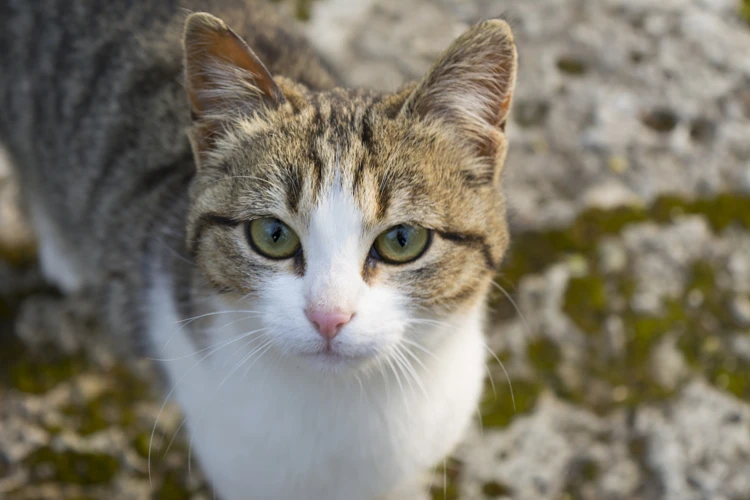
Genetic testing is an essential aspect of responsible cat breeding. If you are thinking about breeding your American Wirehair, it is important to get your furry friend genetically tested before making any decisions. Based on the results, you can make informed decisions about genetic traits, health risks, and compatibility with potential breeding partners.
When your American Wirehair is still a kitten:
It is recommended to test your cat as early as possible. Some genetic conditions can manifest in cats at a very young age. Getting your American Wirehair genetically tested as a kitten can help you understand any health risks your cat may have. Early testing can also help you choose an appropriate breeding partner who does not carry the same genetic defects.
Before Breeding:
Before you decide to breed your American Wirehair, ensure that you have genetic testing done. Knowing your cat’s genetic profile can help in identifying potential health risks in its offspring. You need to ensure that your breeding partner is tested beforehand too. Testing both cats ensures that you’re not breeding two cats with identical defective genes, and thus reducing the risk of health complications.
If You Notice Any Signs of Illness:
If your American Wirehair starts to show any sign of illness, it is crucial to get genetic testing done immediately. Certain genetic diseases can only be detected through testing, particularly if there are no visible symptoms.
After You Adopt a New Cat:
If you have recently adopted a new American Wirehair, it is important to get them genetically tested. This will help you understand their genetic make-up and help you choose a compatible breeding partner. If the cat’s previous owner has not had any genetic testing done, it is imperative to do so yourself to avoid breeding any genetic defects.
Genetic testing is a crucial step in responsible cat breeding. It can help cat breeders make informed decisions, select compatible breeding partners, and reduce health risks in offspring. If you are planning to breed your American Wirehair, it is important to get them genetically tested as early as possible, before breeding, if any signs of illness present, and when adopting a new cat.
How to Choose a Responsible Breeding Partner
Choosing a responsible breeding partner for your American Wirehair is a crucial step in ensuring that you produce healthy and high-quality offspring. Here are a few things to consider when selecting a breeding partner:
Check the Breeder’s Reputation: Look for a reputable breeder who has a history of producing high-quality, healthy kittens. Check out their website and read reviews from previous customers. It is essential to ensure that the breeder follows ethical breeding practices and that they prioritize the health and welfare of their cats.
Genetic Testing: Make sure that the potential breeding partner has undergone genetic testing for any known inherited diseases that affect American Wirehairs. It is also important to verify parentage to avoid inbreeding.
Physical Health: Observe the cat’s physical health and ask for veterinary records to ensure that they are up-to-date on vaccinations and other necessary medical treatments.
Temperament and Personality: Look for a breeding partner with an excellent temperament and personality that aligns with your cat’s. A good personality can be passed down to offspring, and it is crucial for ensuring happy and well-adjusted kittens.
Contract Agreement: It is always a good idea to have a written contract that outlines the terms and conditions of the breeding partnership, including any responsibilities, financial obligations, and warranties.
By following these guidelines, you can choose a responsible breeding partner that will improve the overall health and well-being of your American Wirehair breed.
Conclusion
In summary, genetic testing before choosing a breeding partner for your American Wirehair is crucial in ensuring the health and happiness of future litters. It allows breeders to identify potential health risks and eliminate them from the gene pool, resulting in healthier kittens and lower risk of inherited diseases. Additionally, genetic testing can lead to better matches for breeding, increasing the chances of successful litters.
When getting your American Wirehair genetically tested, it’s important to consult with a reputable veterinarian or genetic testing company that specializes in feline genetics. This ensures accurate results and quality care for your cat.
Choosing a responsible breeding partner is also essential. Look for breeders who prioritize genetic testing and have a comprehensive understanding of feline genetics. A responsible breeder will work with you to ensure the best possible outcome for the litter and prioritize the health and well-being of the cats.
Overall, genetic testing is a key component of responsible breeding and ensures that the American Wirehair breed remains healthy and strong for generations to come. By prioritizing genetic testing and working with responsible breeders, we can ensure that our beloved feline companions enjoy long and happy lives free from inherited disease and genetic health complications.
Frequently Asked Questions
What is the cost of genetic testing for American Wirehairs?
The cost of genetic testing for American Wirehairs can vary depending on the type of testing required. However, it can range from $100-$500 per test.
Is genetic testing necessary for American Wirehair breeding?
Yes, genetic testing is essential for American Wirehair breeding. This is because it ensures that only healthy cats are used for reproduction, leading to healthier kittens and better breeding matches.
Can genetic testing prevent inherited diseases?
Genetic testing cannot prevent inherited diseases, but it can help identify carriers of these diseases. By identifying carriers and avoiding breeding them, the risk of passing on an inherited disease to future generations can be significantly reduced.
What are the benefits of genetic testing in breeding?
Benefits of genetic testing in breeding include healthier kittens, lower risk of inherited diseases, improved quality of life, better matches for breeding, and increased chances of success.
Is it possible to genetically test for cat coat color?
Yes, it is possible to genetically test for cat coat color. This helps breeders understand what color kittens can be produced by specific breeding pairs and can help avoid producing unwanted colors.
When is the best time to genetically test an American Wirehair?
The best time to genetically test an American Wirehair is before considering them as a breeding partner. This helps ensure that only healthy cats are used for reproduction.
Can genetic testing predict a cat’s behavior?
No, genetic testing cannot predict a cat’s behavior as this is influenced by many factors, including environment and upbringing.
What is carrier identification testing?
Carrier identification testing is a type of genetic testing that helps identify cats that carry a specific gene mutation responsible for an inherited disease. Carriers may not show symptoms of the disease but can potentially pass it on to their offspring.
What is parentage verification testing?
Parentage verification testing is a type of genetic testing that confirms the biological parentage of a kitten. This helps ensure that the correct breeding pairs are used and avoids inbreeding.
How can you choose a responsible breeding partner?
Choosing a responsible breeding partner involves researching their breeding history, ensuring they perform genetic testing, and checking that they follow ethical breeding standards. It also involves obtaining a health certificate for the potential breeding cat and considering their temperament and personality.

